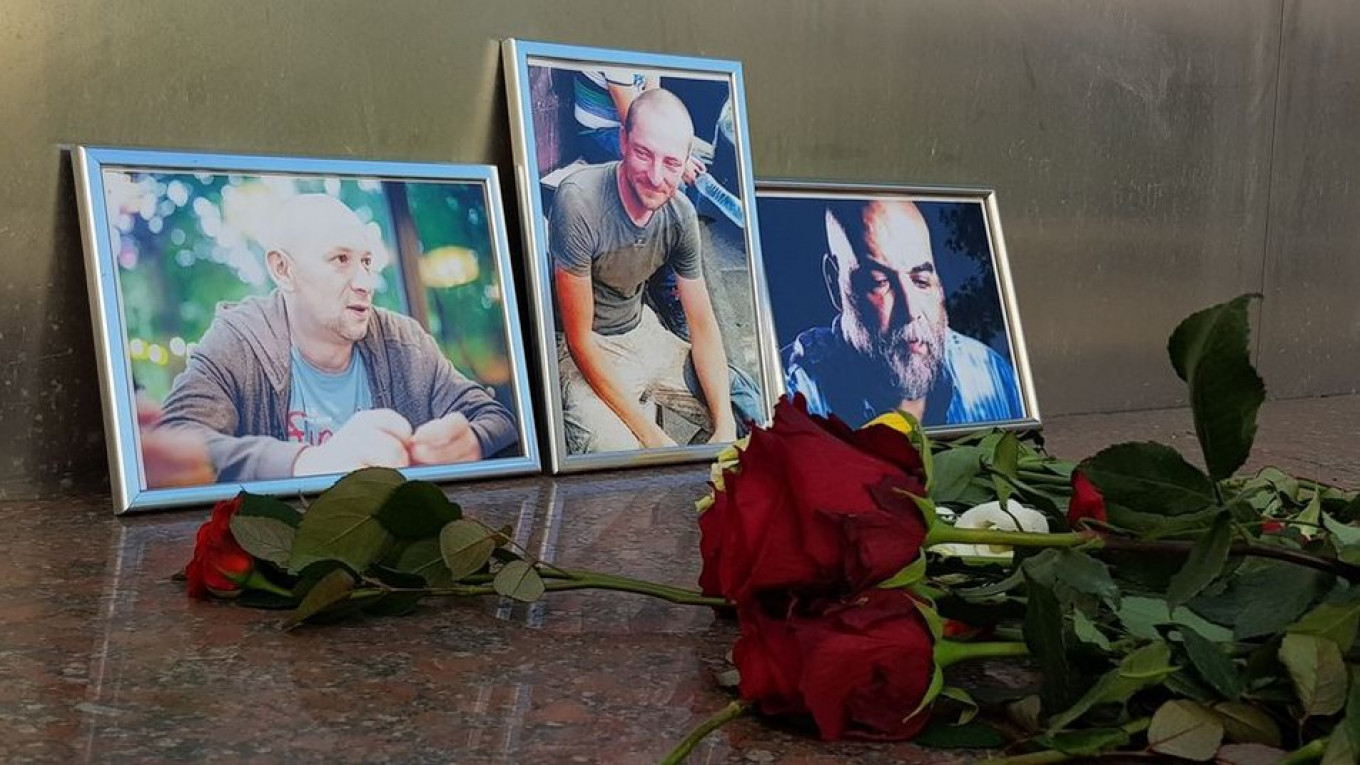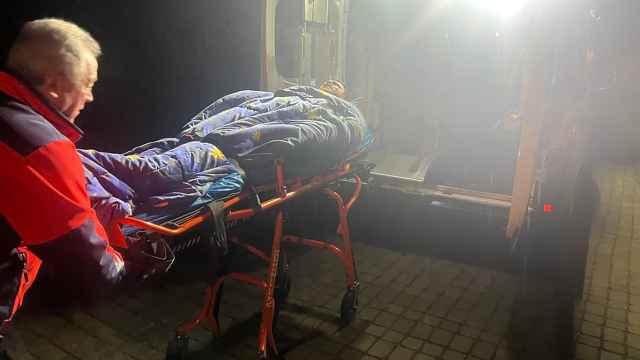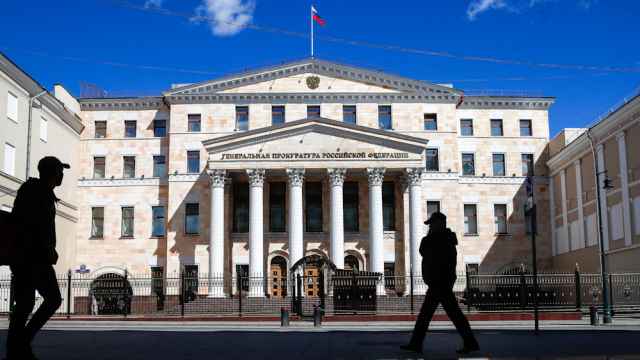Russian tycoon Mikhail Khodorkovsky said he would try to find those responsible for the murder of three journalists working for his online news organization in Central African Republic who he said had been reporting on Russian mercenaries.
Orhan Dzhemal, Alexander Rastorguyev and Kirill Radchenko were working for TsUR, which is financed by Kremlin critic Khodorkovsky, when they were ambushed on Monday.
"I will make efforts to identify those responsible," Khodorkovsky, who now lives outside Russia, wrote on social media, giving no further details on what he intended to do.
A United Nations peacekeeping mission in Central African Republic is helping national authorities investigate the case, UN spokesman Farhan Haq told reporters in New York. He said UN peacekeepers had found the bodies and an abandoned vehicle.
"The bodies were transferred to a UN hospital in Sibut and were then transferred to a local hospital in Bangui by national authorities. The circumstances of the incident have not yet been established," said Haq, adding that UN police traveled to Sibut on Wednesday.
Central African Republic has been ravaged by violence since a 2013 rebellion overthrew then-President Francois Bozize.
But the zone where the men were ambushed is patrolled by armed forces in collaboration with a UN mission and has not been the site of serious recent incidents, the mission said.
Major Séraphin Embondza, a military spokesman for the UN mission, told a news conference in Bangui: "I don't recall ever hearing anything about an incident of this nature on the road in question."
Russian Foreign Ministry spokeswoman Maria Zakharova, however, wrote on Facebook it was her understanding from local authorities the three reporters had "ignored warnings that they were leaving the zone controlled by local law enforcement".
TSuR's deputy chief editor Anastasiya Gorshkova was quoted by Russia's TV Rain as saying the group arrived in Bangui on Saturday on an assignment to report on Wagner Group, a Russian group of private military contractors.
Local and international media have reported Wagner has operated in Central African Republic since Russia this year delivered light arms to its security forces and said it deployed 175 military and civilian instructors to train them.
Reuters has been unable to verify those reports.
Wagner is a secretive organisation that, people with ties to the group have told Reuters, carried out clandestine combat missions on the Kremlin's behalf in eastern Ukraine and Syria.
Russian authorities deny the group's contractors are carrying out their orders. Reuters has been unable to contact the group.
Reporters Without Borders (RSF), a journalism advocacy group, said given the volatility of the country, it was plausible that the journalists had been victims of a financially motivated attack — although other motives were possible.
"We know there is a strong Russian presence in Central Africa and to what extent this investigation on Russian mercenaries, an investigation which was being led by these three Russian journalists, could have been causing problems, it's a question which can be asked," said Arnaud Froger, an RSF member in charge of Africa.
"At this time, no lead should be ignored including that of a targeted hit," Froger said.
Gorshkova was quoted as saying the reporters traveled on Sunday to a site where Wagner was thought to be based, but were turned away because they lacked Defense Ministry accreditation.
They were due on Monday to drive one and a half days along a poor road dotted with checkpoints to meet their fixer who was based in Bambari 400 kilometers (250 miles) away, she was quoted as saying.
The group had $8,500 in cash with them and expensive equipment including two video cameras, she was quoted as saying.
A Message from The Moscow Times:
Dear readers,
We are facing unprecedented challenges. Russia's Prosecutor General's Office has designated The Moscow Times as an "undesirable" organization, criminalizing our work and putting our staff at risk of prosecution. This follows our earlier unjust labeling as a "foreign agent."
These actions are direct attempts to silence independent journalism in Russia. The authorities claim our work "discredits the decisions of the Russian leadership." We see things differently: we strive to provide accurate, unbiased reporting on Russia.
We, the journalists of The Moscow Times, refuse to be silenced. But to continue our work, we need your help.
Your support, no matter how small, makes a world of difference. If you can, please support us monthly starting from just $2. It's quick to set up, and every contribution makes a significant impact.
By supporting The Moscow Times, you're defending open, independent journalism in the face of repression. Thank you for standing with us.
Remind me later.






